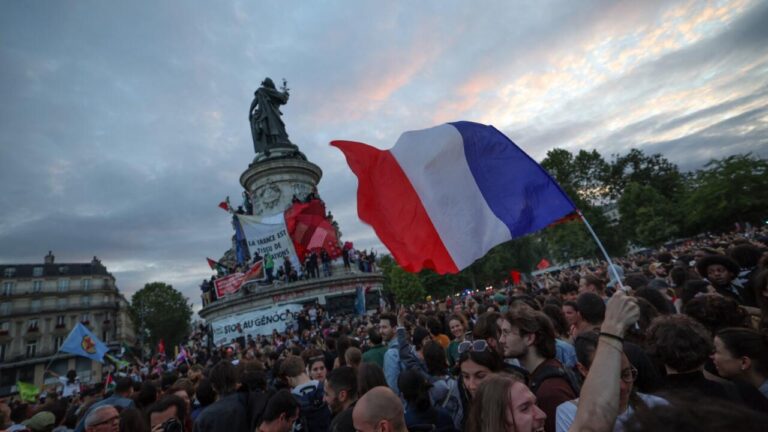France finds itself at the center of mounting international scrutiny following its announcement of a new date for the United Nations summit on Palestinian recognition. The rescheduling has sparked a wave of reactions from key global players and advocacy groups, intensifying diplomatic pressure on Paris to balance its longstanding role as a mediator with shifting geopolitical realities. As the world watches closely, the implications of France’s decision are poised to influence the broader discourse on Middle East peace efforts and the delicate dynamics at the UN.
France Faces Diplomatic Strain Amid Calls to Reschedule UN Palestinian Recognition Summit
France finds itself at the center of escalating diplomatic tensions following calls from multiple international actors to postpone the upcoming UN summit focused on Palestinian recognition. The French government, traditionally seen as a mediator in Middle Eastern affairs, now faces mounting pressure from allies and critics alike to reconsider its position on the summit’s scheduling. Key concerns involve the potential impact on ongoing peace negotiations and regional stability, with several countries urging a delay to allow for more comprehensive dialogue.
Key factors influencing the debate include:
- Heightened security risks and unrest in the region
- Concerns over diplomatic protocols and timing amid sensitive negotiations
- The desire to maintain strong relations with both Palestinian authorities and Israeli officials
- Calls from some UN member states for a more inclusive approach to the recognition process
| Stakeholder | Position on Rescheduling | Impact Factor |
|---|---|---|
| France | Undecided, seeking consensus | High |
| United States | Prefers delay | Medium |
| Palestinian Authority | Supports original date | High |
| Israel | Calls for postponement | High |
Stakeholder Reactions Shed Light on Regional and Global Political Implications
The decision to postpone the UN summit on Palestinian recognition has triggered a wave of responses from key stakeholders, highlighting the intricate balance between regional interests and global diplomatic agendas. Arab states, while publicly emphasizing the importance of sustained dialogue, have expressed frustration over what they perceive as France’s cautious approach. This move is seen by many regional observers as a signal of Paris weighing its longstanding alliances with both Israel and the Palestinian Authority. Meanwhile, European Union officials have adopted a more measured tone, urging renewed consensus-building efforts to avoid further geopolitical fragmentation in the Middle East.
In Washington and beyond, the delay reverberates amid increasing debates over the United States’ role in mediating peace efforts. Analysts note that the summit’s postponement risks diminishing momentum for Palestinian statehood recognition at a critical moment, potentially opening doors for alternative diplomatic channels led by regional powers such as Egypt and Jordan. Critics argue that this reshuffling of dates and priorities reflects deeper strategic calculations rather than mere logistical considerations.
- Arab League: Calls for urgent rescheduling to maintain regional unity
- EU Commission: Advocates for balanced diplomacy and conflict de-escalation
- US State Department: Emphasizes continued support for a two-state solution
- Israeli Officials: Cautious praise for diplomatic patience, wary of summit outcomes
| Stakeholder | Primary Concern | Implications |
|---|---|---|
| France | Balancing alliances | Diplomatic tightrope in Middle East policy |
| Palestinian Authority | Legitimacy & recognition | Pressure to maintain international support |
| Arab States | Regional stability | Risk of fracturing consensus |
| United States | Peace process leadership | Influence on summit outcomes |
Analysis of France’s Strategic Position and Its Impact on Middle East Peace Efforts
France’s position in the Middle East has always been one of delicate balancing, seeking to maintain its historical ties while navigating contemporary geopolitical pressures. The decision to delay the UN summit on Palestinian recognition has intensified scrutiny of Paris’s ability to act as a credible mediator. French diplomacy, traditionally anchored in a commitment to multilateralism and dialogue, now faces criticism from various factions accusing it of yielding to external influences and internal political calculations. This shift threatens to undermine France’s strategic leverage in a region marked by volatility and competing international interests.
The impact of this recalibration extends beyond immediate diplomatic fallout. French reluctance or cautious pacing in pushing forward the summit is perceived as a lack of resolve in advancing peace initiatives, potentially emboldening hardline actors on all sides. Key challenges include:
- Maintaining neutrality: Balancing relationships with both Israel and Palestinian authorities
- International coordination: Aligning with EU partners and other stakeholders
- Domestic politics: Navigating pressure from French political groups and public opinion
The coming weeks will be critical in assessing how France recalibrates its role and whether it can reinvigorate diplomatic momentum amid these mounting pressures.
| Factor | Implication | Possible Outcome |
|---|---|---|
| Timing of Summit | Delayed date fuels uncertainty | Diplomatic engagement stalls |
| France’s Mediation Role | Credibility questioned | Reduced influence in peace talks |
| Regional Reactions | Mixed responses from Middle East actors | Potential fragmentation of support |
Recommendations for Navigating International Pressure While Upholding Diplomatic Integrity
Wrapping Up
As France faces mounting international pressure over the rescheduling of the UN summit on Palestinian recognition, the coming weeks will prove critical in shaping diplomatic relations and advancing the contentious debate around the Israeli-Palestinian conflict. With key stakeholders closely watching France’s next steps, the global community awaits a resolution that balances political sensitivities with the urgent calls for progress in the peace process. The outcome of this summit could have lasting implications for regional stability and the broader international approach to Middle East diplomacy.




